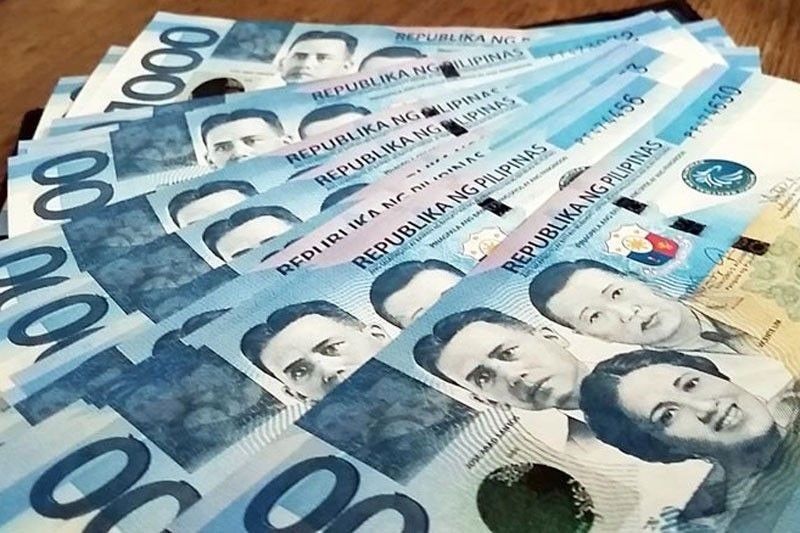Filling gaps in social services through proactive budgeting

Efficient management of government funds is essential to delivering essential public services, and this is particularly crucial in the case of healthcare.
The recent reallocation of unused funds from the Philippine Health Insurance Corp. (PhilHealth) highlights both the challenges and opportunities in addressing budgetary gaps.
As one of the country’s most critical government-owned and controlled corporations (GOCCs), PhilHealth plays a vital role in ensuring access to healthcare for millions of Filipinos.
However, the failure to properly utilize these funds can result in the denial of essential services, including healthcare coverage, medical infrastructure improvements and preventive health initiatives.
In recent months, concerns have surfaced over the underutilization of PhilHealth’s allocated funds, sparking calls for a reevaluation of how government resources are being managed.
The consequences of unused or misallocated funds are far-reaching—missed opportunities to improve healthcare services, expand coverage and address urgent needs directly affect the quality of life for Filipinos, particularly in underserved communities.
To mitigate these issues, it is crucial to explore avenues for fund reallocation, ensuring that resources are directed where they are most needed.
As the government continues to grapple with its budgetary challenges, the reallocation of resources, particularly in GOCCs like PhilHealth, presents an opportunity to address immediate public service gaps while ensuring the country's long-term development.
According to the latest data from the Bureau of the Treasury, the national government’s budget deficit for July 2024 amounted to P28.8 billion, a 39.67% decrease year-on-year due to faster revenue growth of 11.09% compared to a 5.80% rise in expenditures.
However, cumulatively, the budget deficit for the first seven months of 2024 amounted to P642.8 billion, indicating an increase of 7.21% or P43.2 billion from the same period last year. Hence, on an annualized basis, the budget deficit for 2024 so far is higher than it was during the same period in 2023.
A deficit refers to a shortage or deficiency, and in government, it occurs when expenditures exceed revenues. To address this situation, the government may either reduce spending or cover the budget shortfall through loans.
When a country has many loans to pay, the government raises taxes so that it can pay those loans. That explains why governments with high levels of national debt also impose high taxes, which in turn increases the general cost of living.
In the Philippines, debt repayment is incorporated in the national budget. This cost competes with the regular budget items like health care, education, interventions for poverty alleviation etc.
The persistently large budget deficit of the Philippines, which has exceeded 6% of the country’s gross domestic product (GDP) annually over the past few years, indicates that the government’s resources for funding new or ongoing projects are becoming increasingly strained.
The resulting delays in the implementation of priority projects in key sectors such as infrastructure, healthcare and education may slow economic productivity. The postponement of these projects also results in reduced public services, which negatively impacts the lives of Filipinos, especially in underserved communities.
These delays risk hindering efforts aimed at creating jobs and livelihood opportunities, ensuring income security and alleviating poverty, all of which are essential for long-term economic growth and development.
Hence, proper allocation and management of government funds are essential for ensuring the efficient delivery of public services. This not only helps reduce poverty and inequality, but also fosters inclusive economic growth and development, ultimately enhancing the overall quality of life for all Filipinos.
However, there are times when the specific appropriations for a fiscal year do not match the reality because unforeseen circumstances render the present appropriation deficient. That is where congressional adjustments may be required to align the budgetary restrictions with the limitations set by law.
If unused funds can be reallocated by law, they should be directed toward critical sectors like healthcare and education, which are vital for immediate needs and long-term development.
Adjustments to the current budget may require realigning savings, as determined by the National Treasurer, with officials coordinating to ensure these funds are used effectively.
Proper fund allocation and waste reduction could eliminate the need for higher taxes, easing the financial burden on consumers and businesses. Improved tax collection efficiency can also increase government revenue without adding economic strain.
But then again, better tax collection requires controlling corruption, which is the single biggest hindrance to effective fiscal management.
If corruption is out of the picture, there will be more funds available for healthcare, education, agriculture and food production, infrastructure, poverty alleviation, and other public services.
With 65% of Filipinos in the working-age bracket (15-64 years), the Philippines has a demographic advantage that can fuel its development for decades.
Millions of overseas Filipino workers also contribute significantly to the economy through remittances, driving consumer spending, which makes up 70% of the country's GDP.
To sustain this, the government must prioritize health, education, and job creation to empower the workforce, which forms the backbone of the economy.
With only 5% of the population being senior citizens, most Filipinos can contribute to economic growth. The government must invest early in healthcare, education, and entrepreneurship to maximize their potential, fostering job creation and poverty alleviation.
Essentially, this all just boils down to good governance, and everything starts with the wise and honest use of the national budget as a matter of practice across all layers of government, all the time.
Venice Isabelle Rañosa is the research director of the Stratbase Group.
- Latest





























